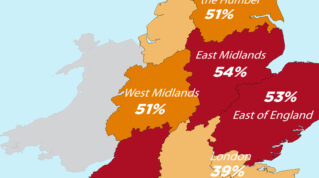Education secretary Nadhim Zahawi describes himself as being “evidence-led”. With reference to his plan to convert more schools to academies in England, he asked people to care only about outcomes (rather than the badging), to “do the right thing” and “follow the evidence”.
So what does the evidence tell us? It’s messy, and it’s been messy from the start.
Sponsored (city) academies were introduced by the 2000 Learning and Skills Act, as an alternative to the status of specialist secondary schools – a status which was denied to struggling schools. The first three of these new schools opened in 2002/3, and their success was acclaimed almost immediately by the then prime minister Tony Blair, amongst others.
In fact, these academies had results in 2003/4 that were no better than the schools they replaced, and some were worse. This point was raised in Parliament and led commentators to say it was now too early to tell whether academies worked.
But it seems to have set a pattern of unfounded claims about the superiority of academies over other types of schools.
In 2010, a new administration passed the Academies Act which permitted existing schools to convert to being academies. This was only possible if they were judged to be high performing.
As of January last year, academies accounted for 78 per cent of secondary schools, and 37 per cent of primaries.
Perhaps they are being misled by cherry-picked evidence, or by something other than robust evidence
The fact that only high performing schools were allowed to convert must create considerable caution about Zahawi’s claims that the best academy trusts “outperform maintained secondaries”. And as an NFER report points out, the same problem arises for the observation that converter academies tend to have higher Ofsted grades.
Conversely, sponsored academies tend to have worse than average Ofsted grades, perhaps because they have more disadvantaged intakes, and Ofsted does not seem to have found a way of making their grading independent of such contextual factors.
In fact, it is not even clear that academies do have better value-added progress results – i.e. better results for pupils equivalent to those in other schools in their areas. An EPI/LSE report recently found no link between academisation and improved outcomes, especially for some converters which had among the worst outcomes.
My own work modelling pupil trajectories, using everything known about children from the time they arrive in their first year at primary school, found no difference in Key Stage 4 outcomes between those pupils attending academies and other school types. The surface differences in outcomes between school types, whether raw-score or Progress 8, are fully explained by differences between their pupil intakes.
Even more problematically for the claims of academy superiority is the fact that the existence of academies in any area is linked to a greater clustering of disadvantaged pupils in particular local schools.
There is a strong correlation between local authorities with a high proportion of academies and those with a higher-than-expected level of between-school social and economic segregation. Although this is presumably not entirely due to academisation.
But like grammar schools, academies appear to drive up such inequalities without improving overall attainment. This segregation of pupil types between schools is then linked to the poverty attainment gap, which the current administration had until recently been acting to reduce, via pupil premium funding for example.
Of course, the body of research on any topic tends to be messy, and is sometimes hard to access. This is why fair and independent translation of research evidence is needed for those who really want to make evidence-led decisions.
But none of the above suggests that the current secretary of state is actually being “evidence-led” on this issue.
Perhaps they are being misled by cherry-picked evidence, or by something other than robust evidence. This worries me because I want education policy (and practice) to be evidence-led as far as possible.
I and my colleagues are always happy to discuss evidence, run rapid reviews, and offer advice. However, on this issue of academisation, I have sensed since 2002 that policy views are almost entirely about politics, and almost nothing to do with better school outcomes.








Deception about academies has been going on since the first three were set up under Labour. Both Labour and Tory politicians have been disingenuous in their much trumpeted ‘evidence’ about the superiority of academies. Unfortunately, most of the media endorsed the politicized message: academy trusts are ‘goooood’ while LAs are ‘baaaaad’. In this they were supported by a few high-profile cheerleaders who wrote complementary articles and featured in puff DfE videos. The current mess which characterizes the English education system is down to successive governments since 2001 and their supporters.